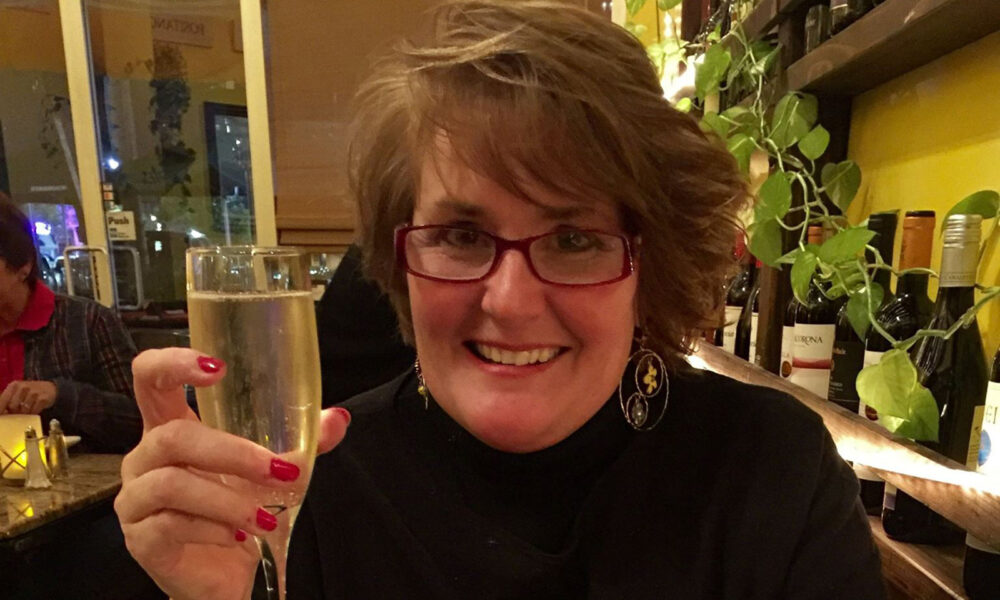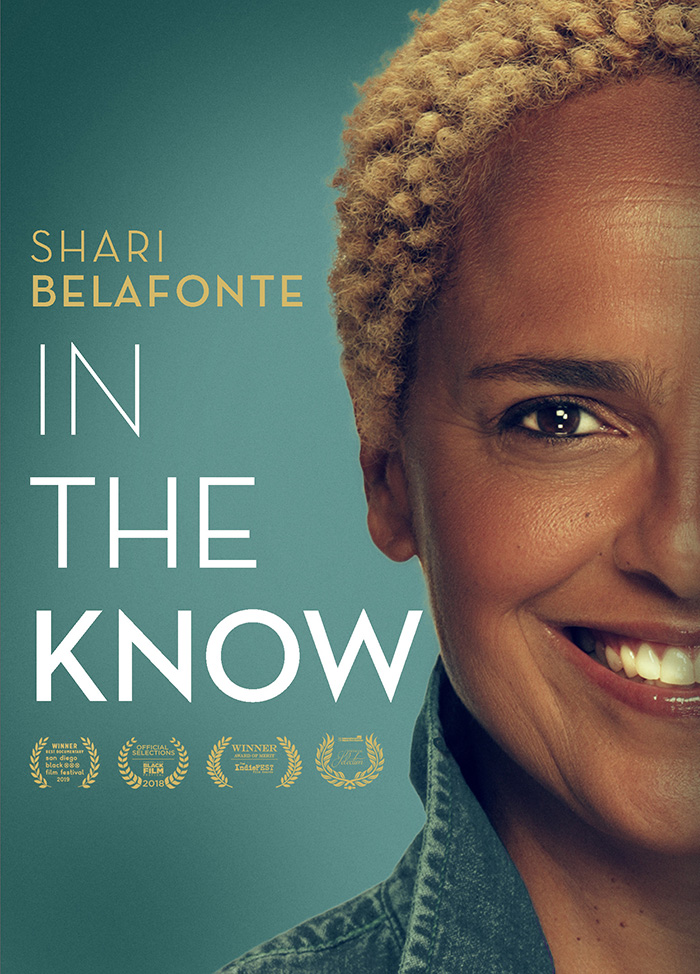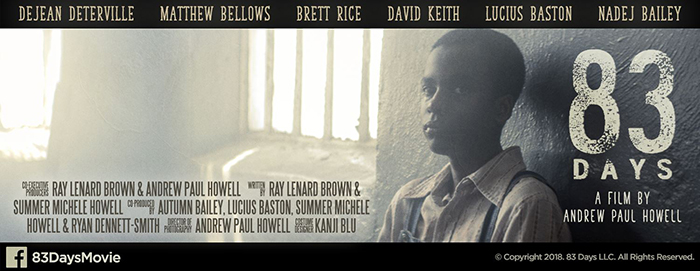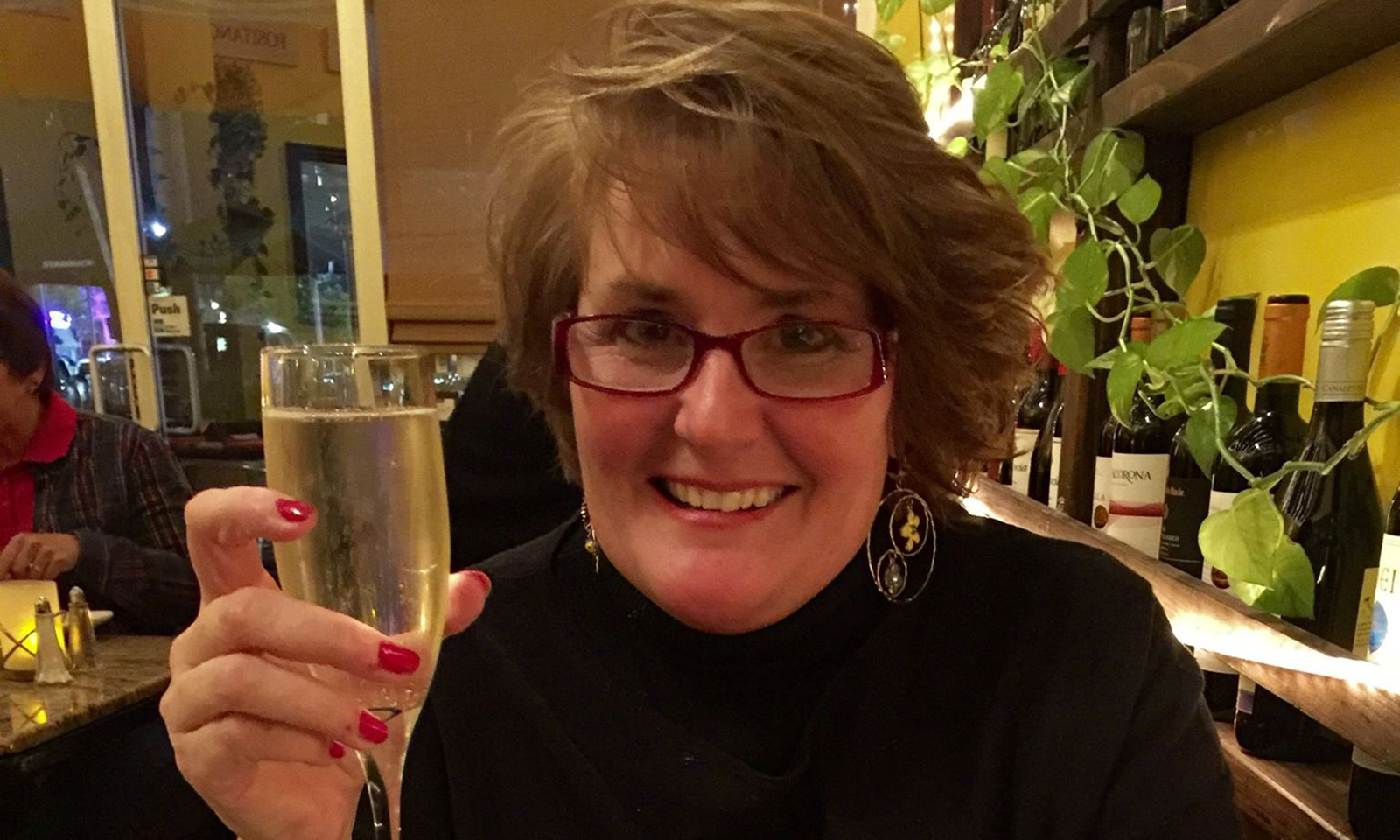

Dreams…. What is your dream?
From the moment the lights go out and the film plays on your screen, you know you are going to be either inspired, angry, or sad. Maybe you’ll even fall in love. Hollywood, or as you can call it “The land of storytellers” is the most powerful profession and medium in the world. Simply put, the right film can move mountains. We are all here for something – you, me, him, her, them, everyone. Some want to be movie stars, famous producers, or directors.
Stacey Blanchet had no dream or desire to be involved in the entertainment industry whatsoever, she wanted to be a fashion designer.
In 2010, her dream became a reality; she created Blanchet Designs and held her first fashion show for charity. As a result, a documentary team of film makers approached her to film her life as a fashion designer. However, after following Stacey for a year, they decided to change the project. They became more interested in finding out what happened to young Stacey in The Journey To Myself after she had to face her Uncle’s demons in the summer of 1976. What happened to Stacey between then and now already in her fifties?
It was then the seed was planted, and she produced her first film called The Journey to Myself. The documentary won Award of Merit from the ‘IndieFEST’ film festival and was an ‘Official Selection’ at the ‘Cin Fest’ film festival in Las Vegas. Over the next four years, Blanchet Designs would design dresses for (2) Prime Time Emmys Awards, as well as the acclaimed Oscars and Grammys for a red-carpet sweep. Her clothing and written interviews she has conducted have been featured in over sixty magazines worldwide.
In 2014, ‘Runway France’ magazine offered her a position of a fashion editor which brought her to the acclaimed Paris Fashion Week. This became one of the most important moments in her life: watching the designers highlight their fashion lines on the runway. Stacey knew in those moments she was unable to produce designs at that level. Her dream was no more. In the moment of doubt and darkness, new paths and dreams were forged. This pivot remarkably done showed her resilience and openness and willingness to accept change.
Stacey’s story took another pivot when she was doing a video feature interview on Shari Belafonte, an American actor, model, writer and singer, and the daughter of activist/actor/singer Harry Belafonte. Stacey found Shari’s back-story so interesting, she ended up doing a documentary on her life.
In 2018 they both took In the Know with Shari Belafonte out to film festivals. It won ‘Best Documentary’ at the ‘San Diego Black Film Festival’ in 2019.
It is Shari Belafonte who becomes a key figure in Stacey’s life when she tells her “Stacey you’re a producer.” And that is how their partnership began.
In August of 2021 Stacey and Shari set up Rowan Moon Productions, LLC. While the world was shut down with Covid, Stacey began making phone calls, asking questions about the industry, selecting projects, buying domain names, setting up social media, making film decks, aligning the projects with the right partners, and getting an agent to represent them. They found luck with Innovative Artists and currently work with agent Babette Perry.
I asked Stacey, where do you even start? I mean, you need to have some clue, a network of people you can access for questions and/or help. How do you just become a producer and break into this business as an outsider?
She said, she never liked to play the Hollywood game, ‘fake it until you make it,’ she suggested you do not either.
Here are a few questions Stacey suggests you should ask yourself when getting started.
- What is my network? Who do I know?
- Are you financing your own project? What is your budget?
- If financed the project by yourself, what is your plan to get it picked up?
- How do you plan to market and distribute your work?
According to Stacey, you need to look at all aspects from filming, financing, distribution, and marketing for your project to get it off the ground and become successful. You must understand the business. You must know how to network and where to meet people to help you navigate these waters. You must be someone people want to work with and place their trust in. The industry is small, and a bad reputation will follow you throughout your career. How you are with people matters more than you think. It is not all business. It is ‘do people want to do business with YOU?
Well, now I am intrigued, so I continued.
Q: How do aspiring entertainers and producers get a foot in the door?
Age-old question. So many avenues that used to be available are no more. I would start as a producer looking for networking opportunities with the Academy and Producer’s Guild. I would start reading and watching interviews with producers on their start. Their advice and what is important in the industry. It is NEVER an innovative idea to cold pitch a studio or producer with your SCRIPT and/or ideas, as legally they cannot open it or respond. It protects you and them. Do your homework and find out what their process is to accept a pitch from you. Join film-making groups and go to film festivals as usually directors and producers need to attend those festivals that their movies are in. It is a reliable source of networking as well.
What are the most important fundamental concepts of creative producing – from developing to financing your projects?
You must have an open mind to hearing all aspects about your creative project per studio, streaming or company you are pitching. There are few options on how to get a project made.
1.) You take it to a studio, and they finance and distribute. This is the major way and ridiculously hard to do without the proper connections and can take years.
2.) Take your projects to all the other outlets and try to get them to finance and distribute on their platforms.
3.) You can raise the capital yourself and film the project with hope of either selling the projects or handling the distribution yourself. If you choose to go it on your own, walk the project through and contact distribution companies and found out what the process is to get your project picked up. It will help you set up your project from the beginning and keep your organized.
Let us say I want to be a producer. I have no film school or formal education. Where should I start?
Today, filmmaking is global and open to anyone who wants to make a film. The days of the three movie studios controlling the content run by three figureheads is over. You still have your movie studios, but they are now more diverse from Tyler Perry, Reece Witherspoon, Kathleen Kennedy, Shonda Rhimes and Ava Duvernay and many more. They each have their own style of movie making but most who are at the top worked in the industry for decades. Do your homework and first decide what type of filmmaker or producer you want to be. Look to how it has been done and how it is currently being done. Do not make the mistake of picking that one person who went outside of the system to get it done. You can be that one person, but the odds are going to be against you, and you will need that back up plan to earn a living while you pursue your dream. Never make any decisions when you are forced. Survival is never good in the decision-making process.
What is a typical day for a producer working on a project?
Do not think there is a typical day. I have an agency that represents me. They get all my projects and asks for my wish list to pitch to. But before I get to that point with them, I do my homework on whether there is another project out there like mine. I put together the pitch deck and top sheet, then talk with my agent. This of course is not every day, but you will be surprised how much time it takes.
Do your research! I cannot stress this enough. Watch and read what projects are out there. See what is getting picked up. See what people are watching and what the demographic is. YOUR project must be new and exciting to catch the attention of anyone. If it is a subject or person that is well known, it must be brand new information you are reveling in your project. Pay attention to who is producing projects you like and/or are like your project. Look for teams of people to work with. And you must understand this can take years if it ever happens.
How does one handle the NOs, rejection and tough things that people in the industry tell you? Like ‘you’re not good enough, your projects sucks, go back to the drawing board, that’s been done before, re-work your pitch.’
That is a big part of this industry. YOU must be able to handle no and the reject. It has been my experience that getting the NO is usually telling you that your project needs some work. I am the kind of person where I personally love to hear that. I want to learn and receive information from people who are making the decisions. Usually, it is not back to the drawing board but back to cleaning it up. Projects are usually in a state of disorder, and you need to clearly define what your angle is. What is your message? And what is the reason you should get picked up? What is special about your projects? If you cannot answer these questions, you will get nowhere.
I hear and read success stories of people taking ten plus years to ever become successful in this industry, how do you stay motivated and work to make a living while chasing those dreams?
I believe you must stay engaged in life. Some say the most important thing in life is interest in it. I believe that. Become a well-rounded person. Some projects take longer than others, and some never make it. You must have life outside of this business.
What is the most valuable lesson that you learned over your career that you think would be valuable to the reader?
You must be a person who likes to change. You must have balance in your life. I am very adaptable and feel comfortable in all situations because I have had so many careers in my life. I always know there is something for me to learn and I go until I have found it. Sometimes I am successful and sometimes I must let go. Know yourself and what you want but be opened to change and you will always find happiness and contentment.
Stacey also shared with me, that she has two solo producing projects ’83 Days’ …. which is represented by ‘Innovative Artists.’ She has also partnered with Quinn Studios on a documentary called ‘White Snake’ about Native Americans. In her back pocket are two passions projects: one on serial killers and the other on her first love – fashion, with the story of Erte (creator of Art Deco). Stacey added, “As you can see my projects are all vastly different. I love that about me. It keeps life interesting. I keep myself open to what the universe brings to me.”
From the moment the lights went out and Stacey’s film started to play on our screen we fell in love. We fell in love with a woman who inspires us to be resilient and reminds us that we all have choices in the directions we can go in our lives. And, as in every movie story comes to its end, in Stacey’s story the credits state, “To be continued” and we cannot wait to see where she takes us next.

























